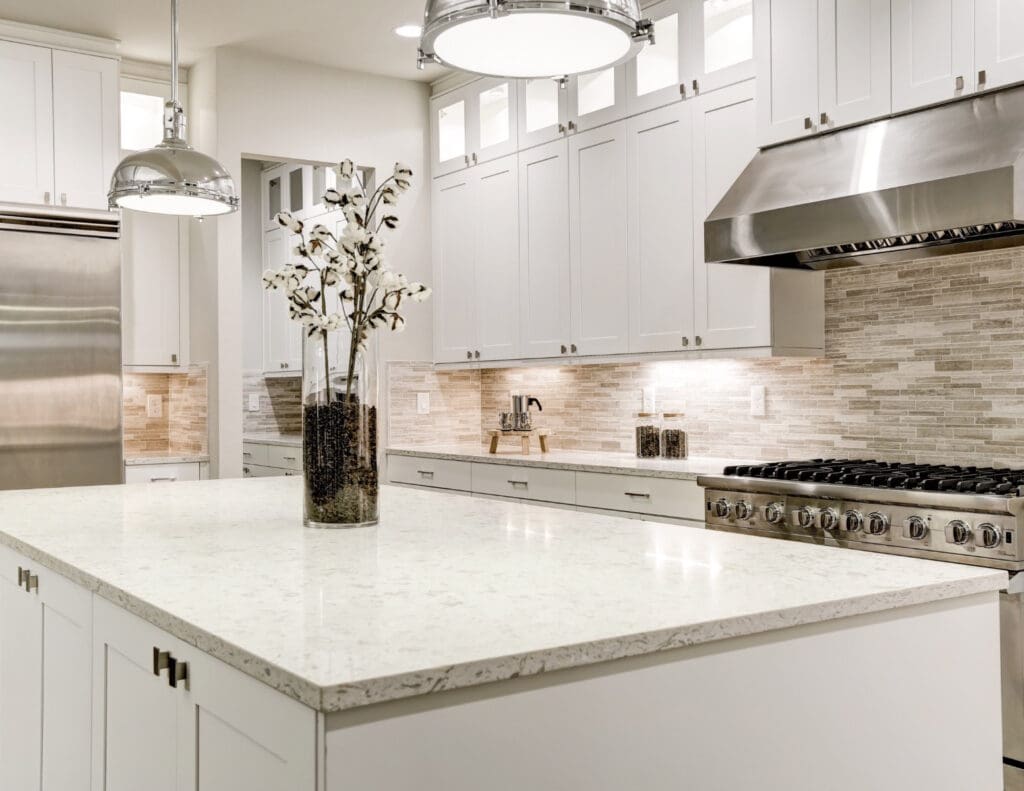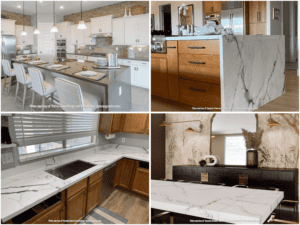Do You Need to Seal Granite Countertops and How to Do It Right?

Granite is one of the most durable and most beautiful natural stones, but even it isn’t immune to stains and moisture. Over time, the stone’s porous structure starts absorbing liquids—especially in high-use areas. So the question is: do you need to seal granite countertops and how do you do it properly? Let’s break it down.
Does Granite Have to Be Sealed?
Yes, it does. Granite is a natural material with microscopic pores that allow liquids to seep in. Even the densest varieties eventually begin to absorb moisture and dirt. It’s exactly this porosity that makes regular sealing so important. In the kitchen—where spills are frequent—you need to seal granite. Without a protective barrier, coffee, wine, or oil can leave stubborn stains and damage the surface.
How Often to Seal Granite?
The ideal frequency is once every 12 to 24 months, depending on how heavily the surface is used. If you’re unsure whether it’s time, try a simple test: drop a bit of water on the countertop and wait 15 minutes. If the granite darkens, it’s time to seal. That’s your answer to how often to seal granite countertops.
How to Reseal Granite?
Proper sealing starts with a clean, dry surface. Remove all stains, grease, and food residue, then let the granite dry completely. Apply sealant granite evenly across the surface, wait 15–20 minutes, and gently wipe away any excess. Then polish the surface and avoid using it for the next 24 hours. This process forms the foundation of effective sealing granite tops and keeps stains at bay for months.
Seal Granite Worktop: Is It Necessary?
Yes—especially in areas that see a lot of action, like kitchen islands or the space near the sink. Frequent contact with moisture, food, and cleaning products makes these areas more vulnerable. To prevent stains and surface damage, it’s best to seal granite worktop at least once a year, or more often if the stone absorbs water quickly.
How to Treat Granite Countertops After Sealing?
To make the protective layer last longer, care for your granite gently and avoid harsh chemicals. There’s no need to buy expensive cleaners—just use a soft cloth, warm water, and mild soap. This routine helps you avoid the need to reseal granite countertops too often and keeps your surface clean and shiny. Be aware that abrasive powders and alcohol-based solutions will eventually wear down the sealant, reducing its effectiveness. That’s why it’s essential to understand how to treat granite counters the right way.
Conclusion
Sealing countertops isn’t just a nice-to-have—it’s a necessary step if you want your granite to stay beautiful and durable for years. With a quality seal in place, the stone resists moisture, stains, and daily grime. The most important thing is consistency: how often to reseal granite depends on surface condition, but at a minimum, once a year is a smart rule. So, if you’ve been wondering, do you have to seal granite countertops—the answer is yes. It’s one of the simplest and most effective ways to protect your natural stone.
Read more:
- Do Granite Countertops Need Sealing? Busting Myths and Providing a Clear Answer.
- How to Care for Granite Countertops: A Complete Guide to Maintenance and Upkeep.
- Granite Countertop Care: Common Mistakes, Expert Tips, and Top Cleaning Products
- Do specialty products protect marble and granite countertops from dirt or not?











